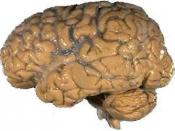Interaction
Throughout the life span, parent-child interaction is an important context for development. Bronfenbrenner's ecological approach to human development describes behavior as unfolding within a nested and interactive set of systems and levels ranging from several microsystems (family, peers, neighborhood) to the macrosystem (broad societal norms and attitudes). Although development clearly occurs within all of these multiple systems and contexts, the family context is one of the most proximal and often the most influential of these systems.
Most children are brought up in homes where the rules and norms of the household conform to the rules and norms of society. For example things such as drug use, irrational behavior and other things are taught to be unacceptable. Parents will usually warn a child of the consequences of these activities to not only themselves but to their health. It is through these early social interactions that children learn and at a later stage in life, have the knowledge to make the right decision.
If a teen is presented with drugs, but has already established the knowledge of the dangers of drug use, they have a very effective tool. On the opposite side, if a child is brought up in a home where laziness, alcohol or drug use is present, the child is less likely to make interactions socially with a parent where their cognitive development will be affected in a positive way. The child will still learn how to make decisions and how to think from the parent present, but they will not learn how to make the right decisions. Going back to the example of the teen presented with drugs, a child brought up in the latter environment will not have the cognitive tools to make the right decision about drug use. The child has been brought up to think...


